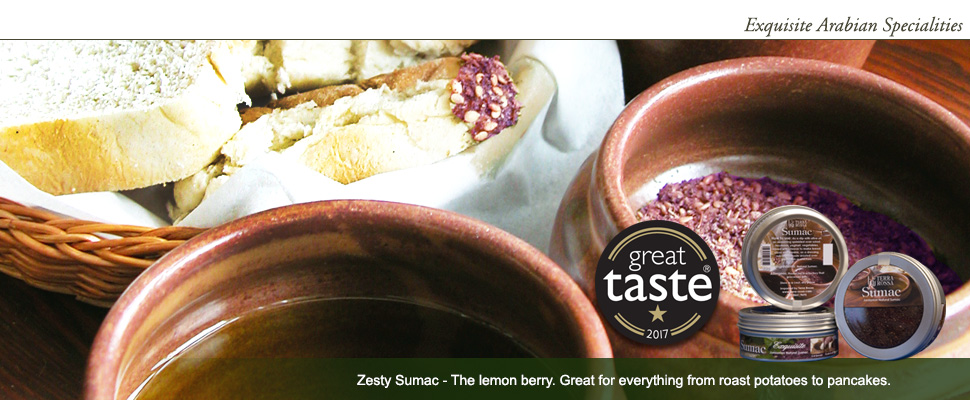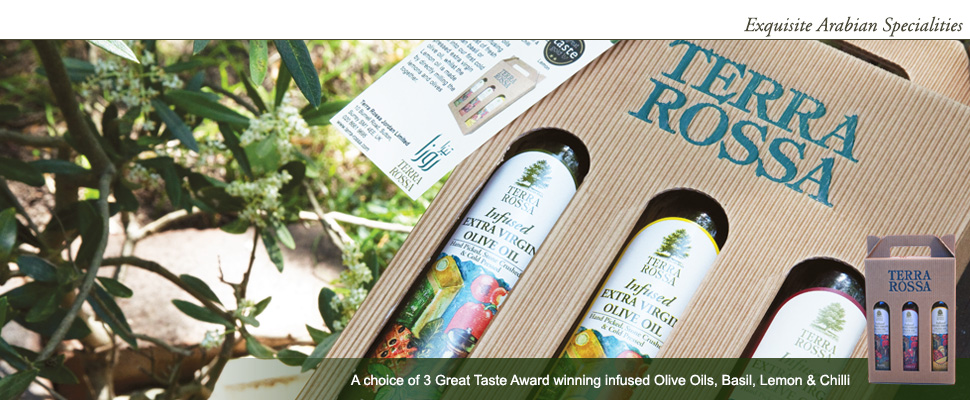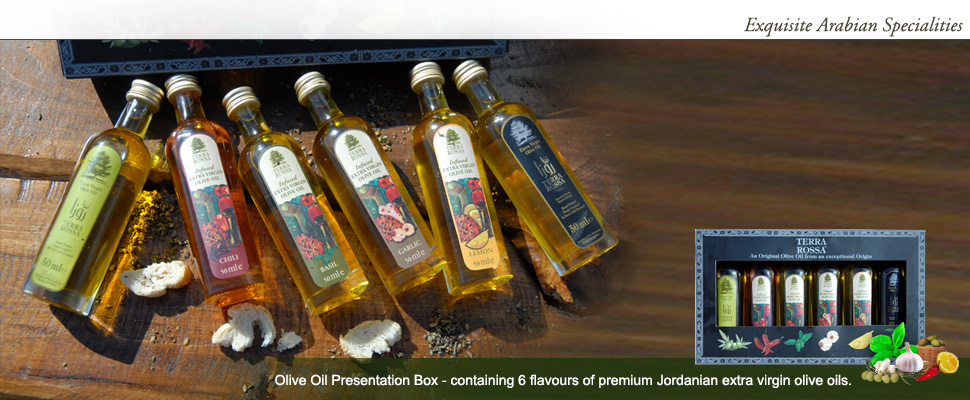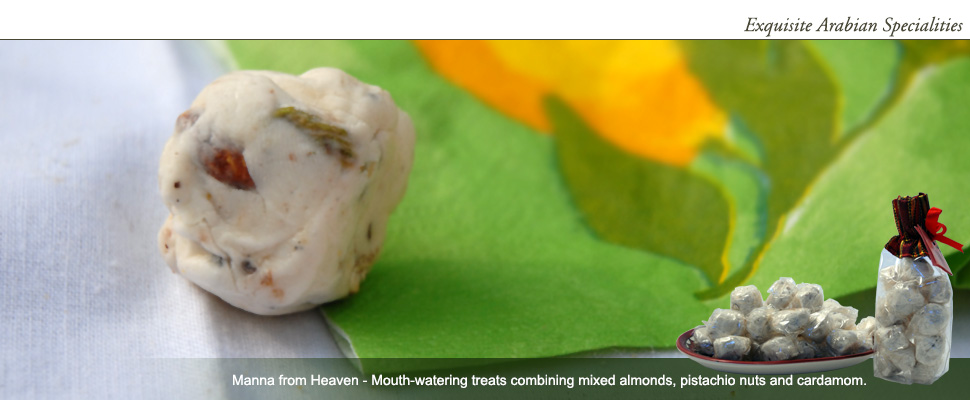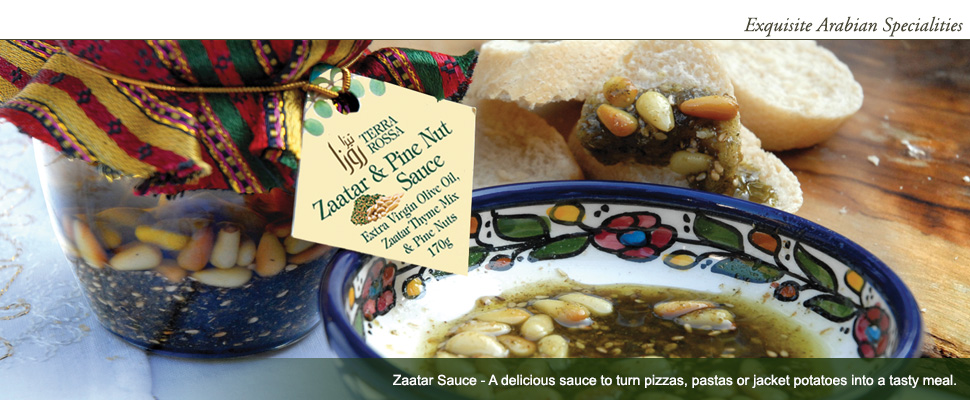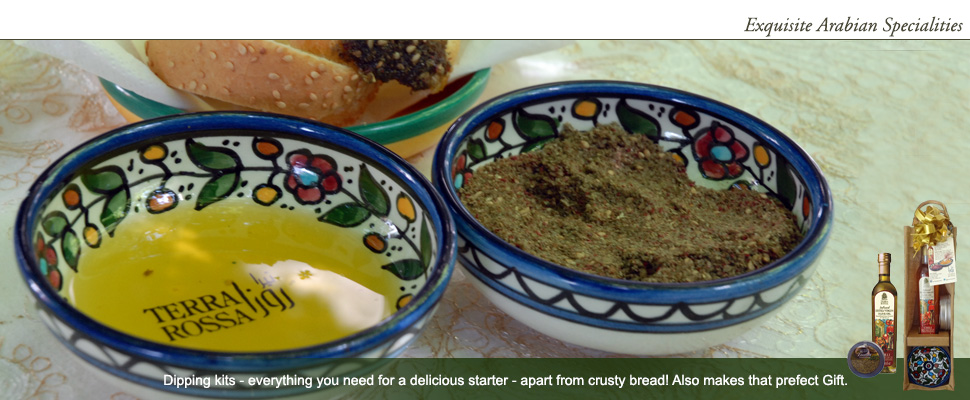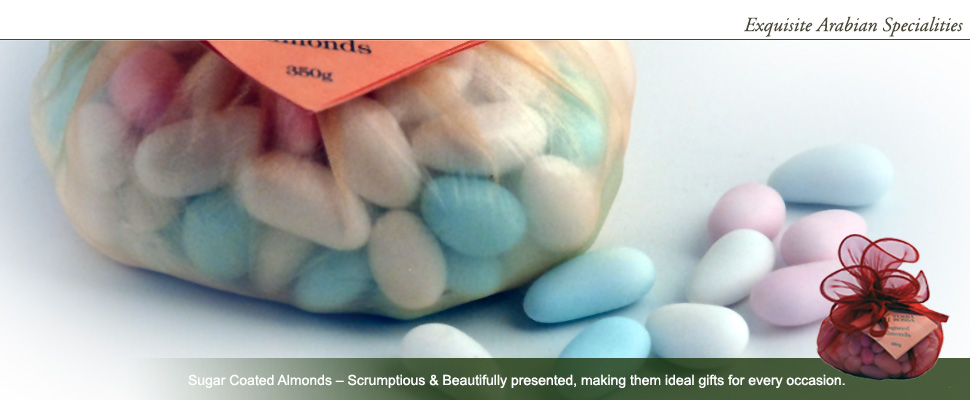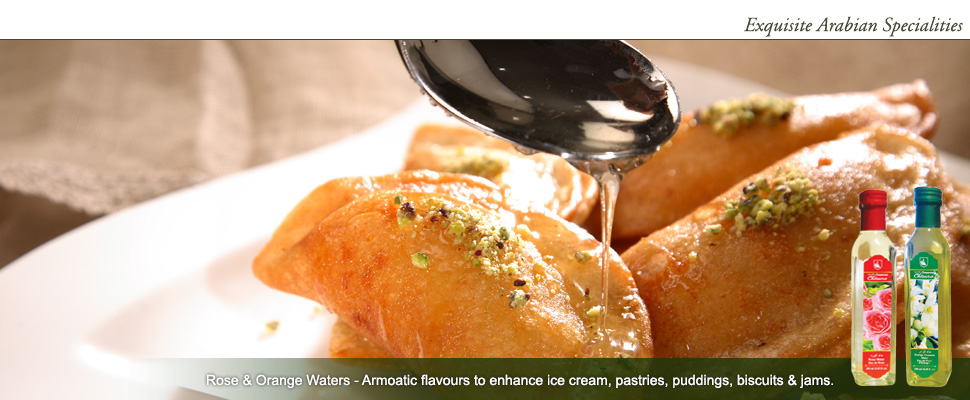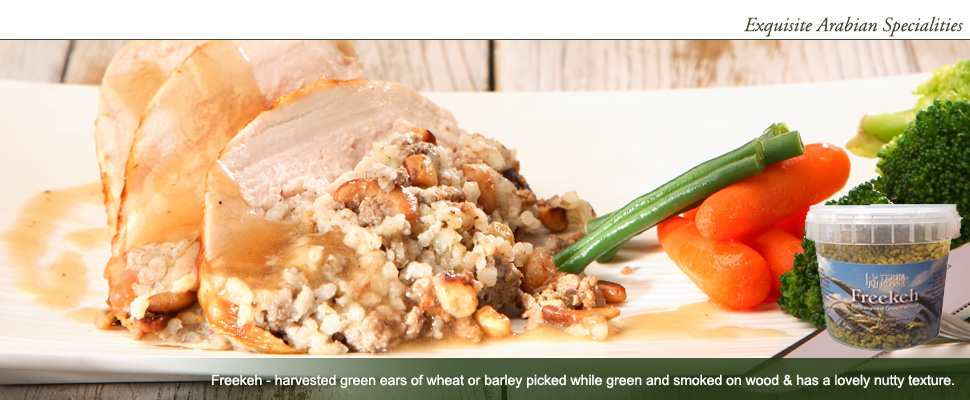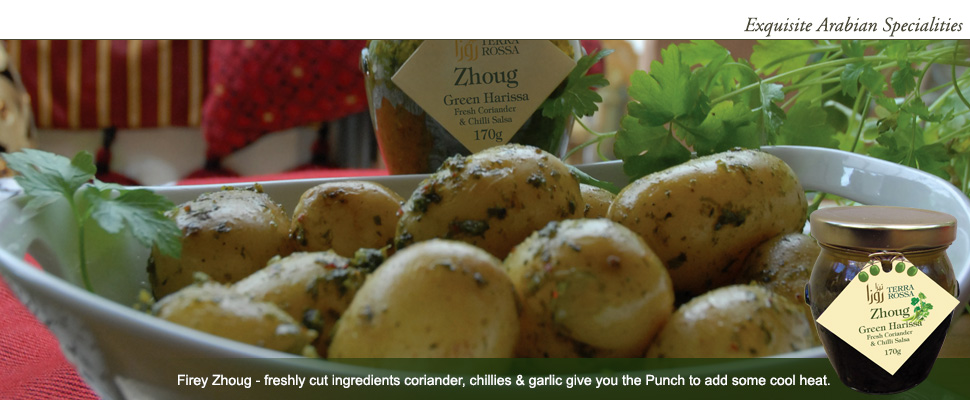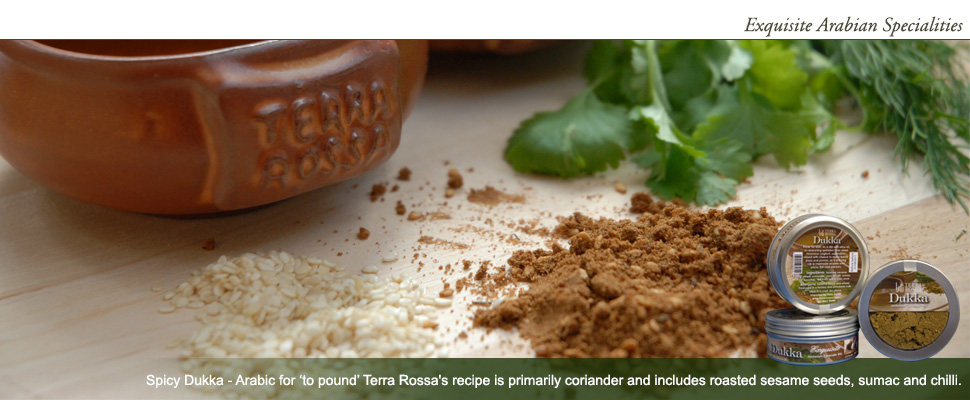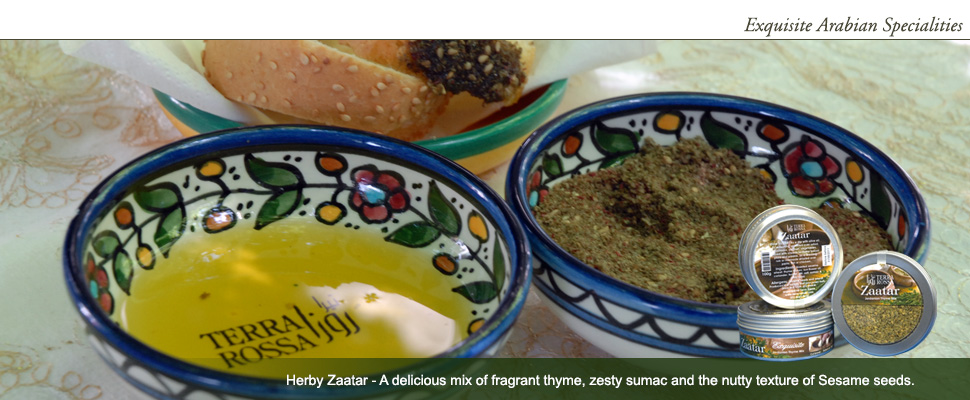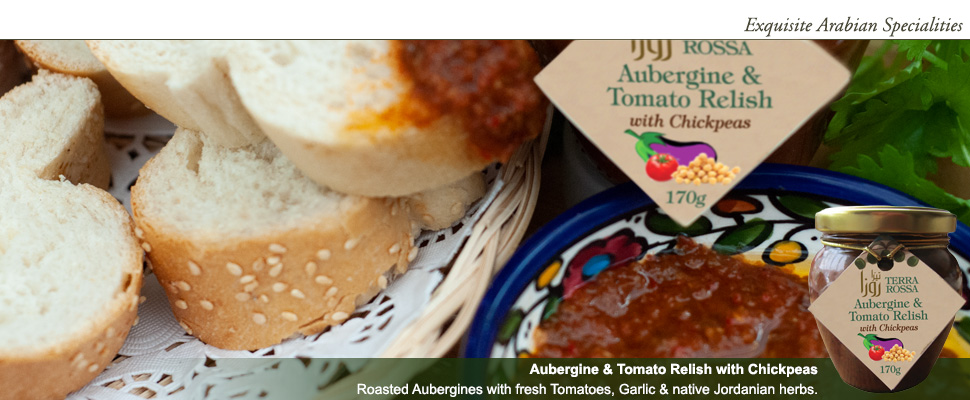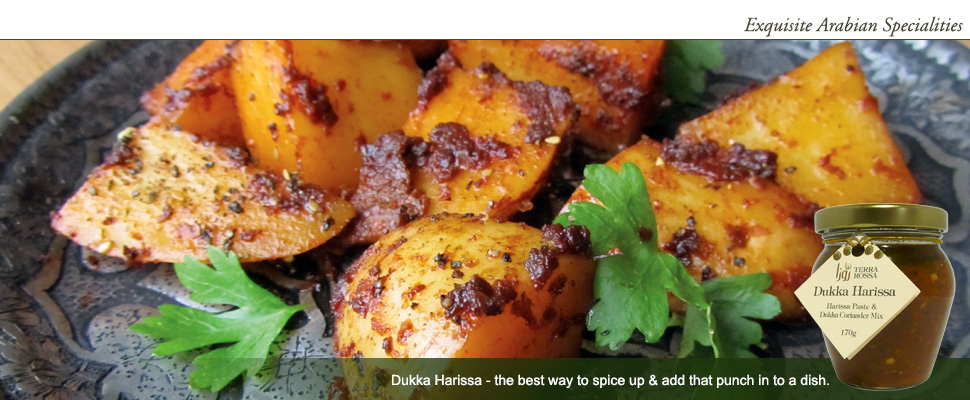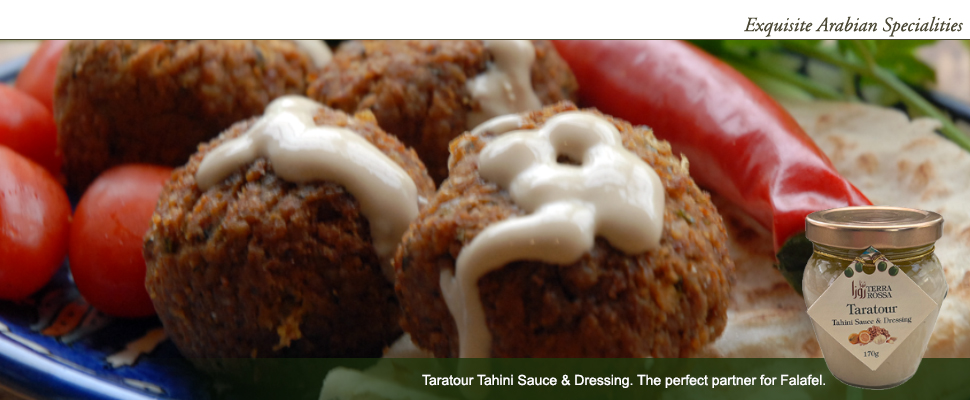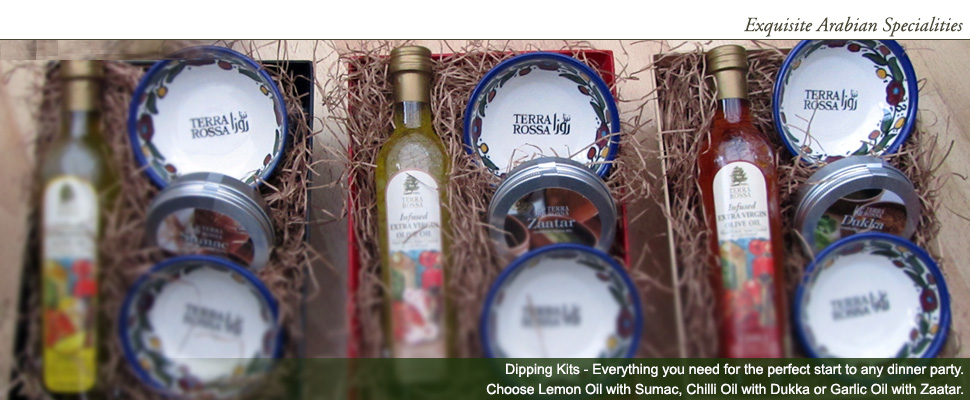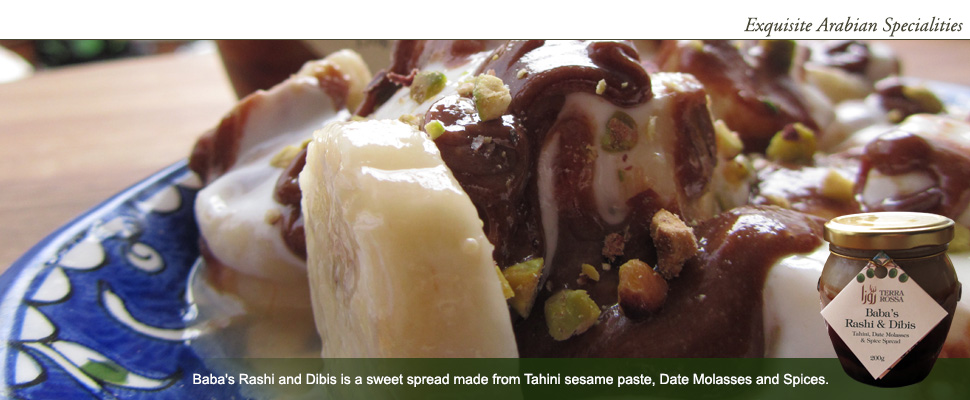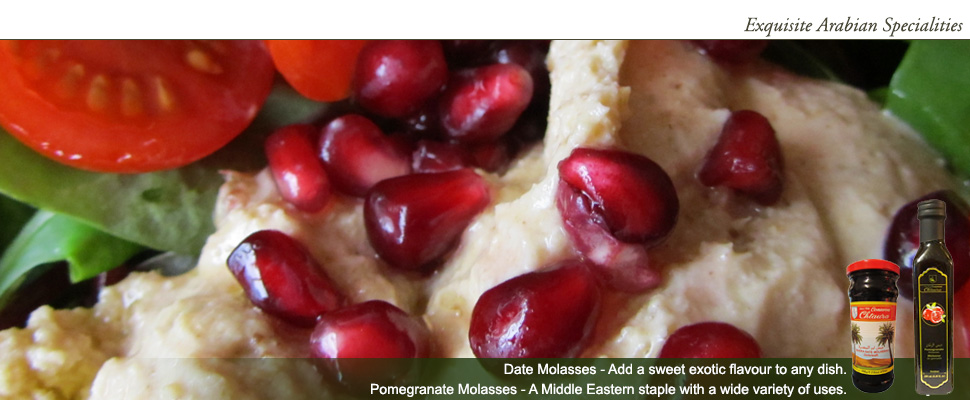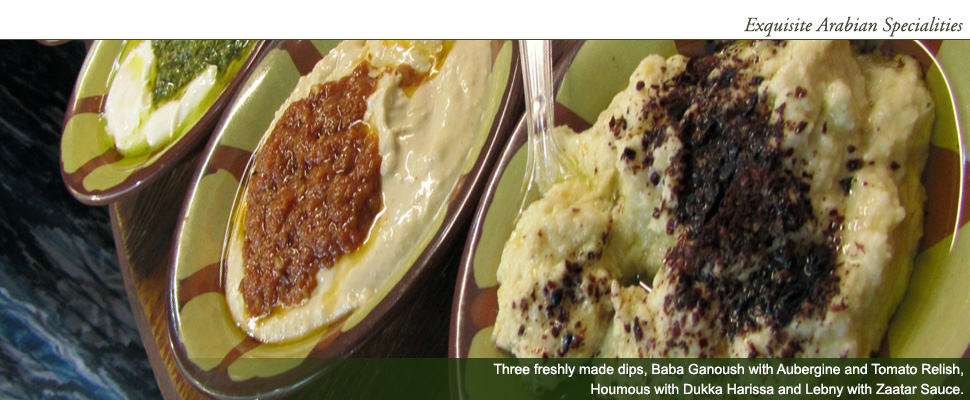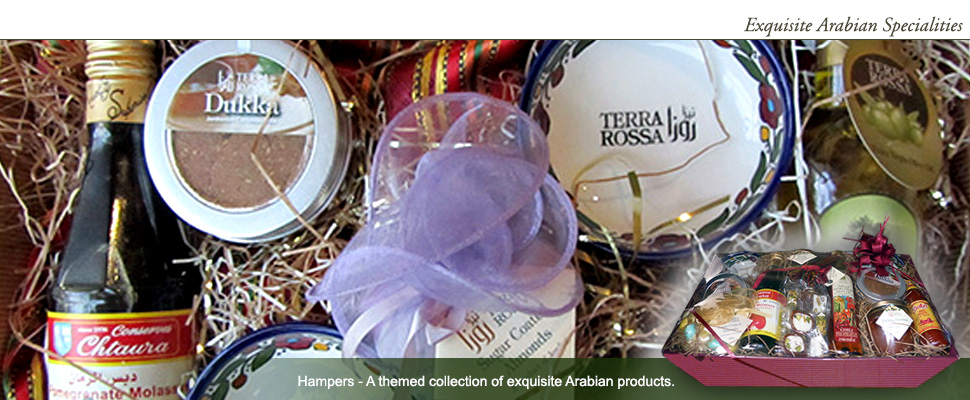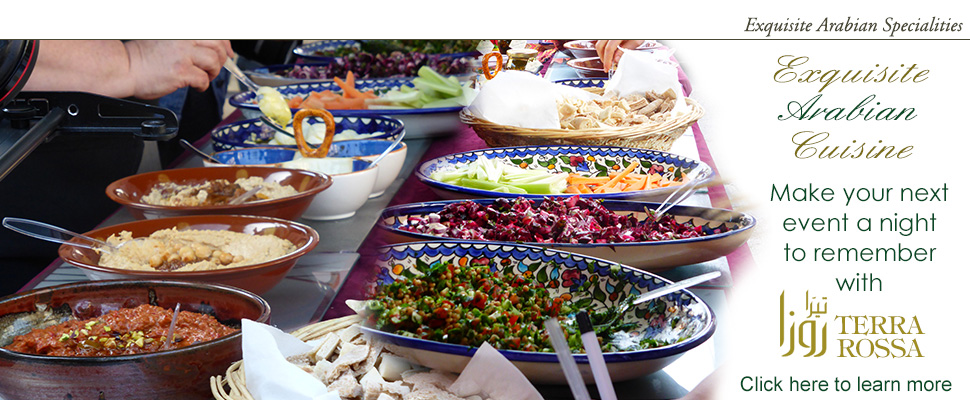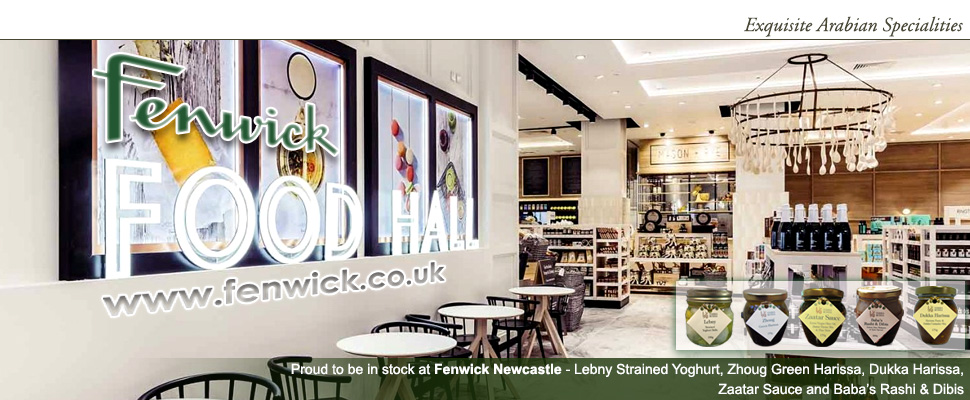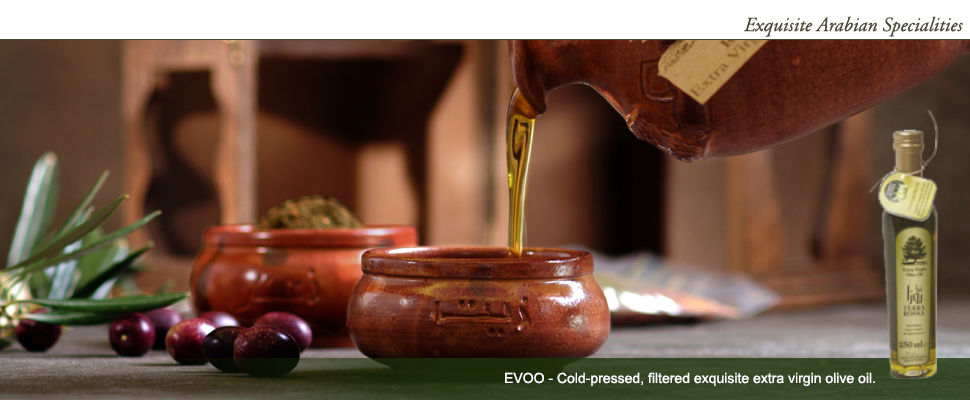What is Zait & Zaatar?
About Zait & Zaatar
In addition to importing the Jordanian exquisite range of Zait (Arabic for extra virgin olive oil), Terra Rossa also offers you a unique mix called Zaatar. Thyme is 'Zaatar' in Arabic. Thyme is most popularly used as one of the main ingredients in the spice mix named after it - Zaatar. This 'Mixed Zaatar' is actually a mix of thyme, sesame seeds and sumac citrus berries.
Zaatar is traditionally eaten as part of a healthy breakfast and is ideal as an aperitif or hors d'oeuvre. A small piece of bread is first dipped into the olive oil and then into the thyme. Zaatar can also be used for cooking and is sprinkled over chicken, vegetables, salads and fish.
Eating 'Mixed Zaatar' on a daily basis may not be a bad idea as plain Zaatar (thyme) also has many benefits that you may not be aware of. Eating Zaatar on bread helps you digest the heaviness of the bread and can prevent many digestive and allergic reactions related to bread. Herbalists say that Zaatar is a used to treat gastrointestinal disorders because it is a fantastic anti-fungal, anti-biotic, anti-septic, and anti-microbial agent.
Thyme is a vermifuge and daily consumption of it helps keep worms and other parasites from dwelling in your body - especially if you live in a place where you are unsure of water quality or cleanliness. You can eat the leaves or drink the tea for this purpose. Thyme also repels insects, so if you have any illness in the house or any problem spots in your house or yard - think of thyme. A cleverly placed thyme bush is a good addition to any garden.
Drinking the green leafy tea also has many health benefits. A few cups a day will ease menstrual cramps as well as relieve the tenseness and moodiness that often accompanies PMT. Zaatar is also helpful for stomach problems as well as coughs and fever. Thyme tea is a wonderfully pleasant tea for children's coughs as they delight in the flavour. It is also said to alleviate whooping cough and nightmares. It helps in the elimination of phlegm, relieves any pain that may accompany the illness and calms a child's nerves.
You can also use it for a mild sore throat (for a severe sore throat spray a couple drops of the essential oil mixed with water or herbal tea directly on your throat) and post nasal drip.
Zaatar is available either individually starting with 50g tubs, 100g tins or is included as part of set of gift packs that are ideal for food lovers and connoisseurs to bring a real Middle Eastern flavour to their table. Prices start from £2.75 for the Zaatar tub to £19.21 for the gift packs. The gift packs consist of various combinations of Zaatar, extra virgin olive oil and hand-made pots, one each for the oil and Zaatar.
Origins of Olive Oil
A taste older than meat or wine, a taste as old as water, olive oil has its deep roots in history. Only the sea itself seems as ancient in the Holy Land region as the olive and its oil, no other product of nature has shaped civilization from the remotest antiquity to the present. The Olive tree, known as the oldest tree in the world, has been a symbol of peace, purification, fertility, wisdom, victory, and strength for thousands of years. Ancient Syrians were the first civilization to cultivate the olive tree, and was first brought to Spain by the Phoenicians "wherever the Phoenicians went olive trees followed".
"Terra Rossa", a characteristic of the region, is a band of fertile red soil overlaying a bed of limestone. It is red in colour due to the presence of the reddish coloured iron. This unusual combination provides perfect natural drainage, ideal for root nourishment, thus creating one of the best olives in the world. Within this particular ecosystem determined by just the right wind, the groves are therefore unthreatened by parasites. This makes it possible to grow the olives organically and to avoid chemical treatment that would affect the purity of the oil.
Successors to Phoenicians, JomoFOOD extracts Terra Rossa, an extra virgin olive oil from old home grown olive groves that have been grown in harmony with nature, crafted with the experience of a 6000 year old tradition. Terra Rossa® olive trees are planted in one of the holiest parts of the world, a land walked by all the prophets and irrigated by the River Jordan, a location that has been ideal for olive cultivation throughout time.
Terra Rossa Method of Olive Oil Extraction
Terra Rossa uses two methods to extract its olive oil, Sinolea and centrifugal.
Within 10 hours of hand harvesting, the olives are crushed with traditional granite stone.
The Stone Crusher
- Can be adapted to olive and pit size to optimize paste characteristics
- Doesn't cut the skin, releasing less chlorophyll
- Formation of larger size drops of oil, minimizing mixing times
- Paste isn't heated.
The Sinolea Method
- A completely cold working system.
- No agitation or press of the oil.
- Guarantees the highest contents of antioxidants and specific quality components.
- High in polyphenol content.
- Very low acidity.
- Exalts the extra virgin's oil organolephic features.
- Produces oil with richness in fragrance and taste.
The olive paste is then penetrated by thousands of stainless steel blades slowly and continuously. Each time the blades emerge from the paste they bring with them a small quantity of very pure golden yellow oil with an olive green reflection, which drips off and is collected. The result of this expensive process is an oil of great delicacy.
The Centrifugal Method
The Sinolea method only extracts about 50% of the oil in the paste. The paste is then placed in a centrifugal machine and spun at high speed to allow the oil to seperate from the water. This produces the first cold-pressed olive oil which is then decantered and placed in large cooling vats.
All our processes operate at low temperature, for it retains not only the sensitive aromatic properties, but also the antioxidants and nutrients which are often diminished by elevated temperature.
Independent Assessment
Sinolea
Aroma
Sharply fresh citrus tones with crushed apples and a touch of melon, followed by softly spicy nuts and some milky tones.
Taste
Sweet start with developing tones of nuts and fruit. This is followed by a light almond skin bitterness and good pepper. The after-taste is deeply nutty with a light peppery tingle.
Style
"Delicato" style of oil with well balanced bitterness and pepper. The flavours are intensely nutty with a long sweet finish. The texture is soft and velvety.
Overall Assessment
An easy-to-use and well-balanced oil in a style which is likely to appeal to the many customers who do not like very strong flavours. However, the oil certainly does not lack flavour. Its deeply nutty tones, though not very complex, are very smooth and attractive. This is a good example of this style of oil.
EVOO
Aroma
Intense lemon citrus tones with apples, followed by an interesting touch of grassiness with sweet nuts.
Taste
Sweet fruity tones with light lemon develop first followed by a light herby bitterness and a sharp blast of pepper which fades to a pleasantly sweet finish with nuts and herbs.
Style
"Delicato" style of oil with well balanced bitterness and pepper. The flavours have some interesting complexity.
Overall Assessment
An attractive all-round oil with well-balanced fruit, bitterness and Assessment pepper. It is likely to appeal to those customers who do not like a strong oil but who do want some complexity of flavour.
Benefits of Olive Oil
Olive oil is an integral part of the "Mediterranean diet" which is associated with sensible tasty portions and slower, more enjoyable eating. People who eat a "Mediterranean diet" have been shown to have a remarkable variety of health benefits. Olive oil can quickly satisfy hunger and lead to fewer total calories ingested at mealtime. Studies suggest that olive oil decreases rates of cardiovascular disease and cancer. It is unclear if any single component of olive oil is responsible for these health benefits or if it is a combination of olive oil and a diet high in vegetables, fruit and fish.
Extra virgin olive oil is one of the few oils that can be eaten without chemical processing. (Nearly every other vegetable oil has not been detoxified and refined with steam and solvents). Fresh pressed olive oil can be eaten immediately and retains the natural flavours, vitamins, minerals, antioxidants, and other healthy products of the ripe olive fruit.
Most doctors advocate lowering total fat and calories in your diet, and substituting butter, margarine and tropical oils with healthy fats like olive oil.
The Antioxidant Activity of Polyphenols Has Shown Promising Results with Respect to:
Atherosclerosis
Oxidized low-density lipoproteins (LDL) contribute to the progression of human atherosclerosis. Antioxidants have been shown to prevent LDL modification. The beneficial effects of a Mediterranean diet may be defined by the unique antioxidant properties of its phenolic compounds.
Antimicrobial Activity
Olive polyphenols have been demonstrated to inhibit or delay the rate of growth bacteria such as Salmonella, Cholera, Staphylococcus, Pseudomonas, and Influenza in vitro. These data suggest a potential role of olive water polyphenol antioxidants in promoting intestinal and respiratory human and animal wellness, and as an antimicrobial food additive in pest management programs.
Cancer
There is a growing body of evidence that reactive oxygen species are involved in the etiology of fat-related neoplasm, especially in patients suffering from predisposing inflammatory conditions where high quantities of reactive oxygen are produced. Recent studies have shown that the abundant phenolic antioxidant fractions of olive oil have a potent inhibitory ability on reactive oxygen species associated with colon and breast pathologies.
Oxidative Stress from Passive Smoking
Recent studies which involve administration of the phenolic fraction from olive water in rats exposed to oxidative stress from secondary smoke, show a dramatic reduction of stress and protective activity by polyphenols in the diet.
Skin Damage and Photoprotection
The skin damage produced by overexposure to sun rays and environmental stress is related to the destructive activity of free oxygen related radicals produced by skin cells. Polyphenolic components of olive oil have been compared to traditional antioxidants, such as tocopherols, used by the cosmetic and pharmaceutical industry to prevent skin damage. Results show polyphenols as having the highest activity as radical scavengers.
Cooking with Olive Oil
Contrary to the myth that animal fats and hydrogenated oils are more resistant to heat, recent studies have shown that olive oil is the most suitable oil for frying because it remains stable due to its anti-oxidation agents, even at high temperatures.
Research has been conducted by experts and has shown that olive oil can stand temperatures over 200 Celsius sometimes even reaching up to 230 - 250 Celsius.
With the absence of anti-oxidative agents, animal fats oxides quickly, with all the harmful affects to the health of those who consume them.
Of course by olive oil, it is meant extra virgin olive oil, which is more stable due to its anti-oxidative agents, but even refined olive oil has been proved to resist heat and remain stable to a certain degree.
During frying, cooking fat replaces part of the water naturally in the food. What makes fried food taste good is that the exchange actually enhances its flavour. Sixty percent of the food's moisture content must evaporate before the olive oil begins to penetrate; other fats insinuate themselves more quickly. Therefore, frying in olive oil renders food less greasy, more crunchy, with lower fat content, and fewer calories than food fried in other fats.
Olive Oil Care Instructions
Store in a dark, dry place away from heat and light.
All our oils have a shelf life of two years from date of production.
General Manufacturing Method
Grinding of Olives to Paste
Stone Olive Mills
Stone rollers or wheels roll in circles on a slab of granite to grind the olives into a paste.
Advantages
- can be adapted to olive and pit size to optimise paste characteristics
- doesn't cut the skin, releasing less chlorophyll so less bitter oil
- formation of larger size drops of oil, minimizing mixing times
- paste isn't heated
Disadvantages
- bulky
- stone is difficult to clean
- green olives will prolong grinding time
- costly
- discontinuous process - time consuming
- high labour cost
Hammer Mill
A hammer mill has swinging arms which through centrifugal action push the olives into the sides of a rotating chamber, similar to a home garbage disposer. The mill may have one to several hammers.
Advantages
- continuous
- high throughput
- Tolerates debris such as rocks and grit
- know, perfected technology
- extracts more phenols so oil has longer shelf life
Disadvantages
- may form emulsion which impedes oil - water separation
- organoleptic characteristics affected - oil can have bitter, stronger, spicy taste due to more phenols
- wear and tear of metal parts
- oil paste may heat up
Oil Separation
Centrifugal Decanters
Spins the olive paste in a horizontal drum; the heavier flesh and pits goes to the outside and the water and oil is tapped off from the centre.
Advantages
- Compact machinery - one decanter can take the place of several presses
- semi continuous and automated
- limited labour
Disadvantages
- expensive
- more technical labour required
- may consume hot water
- high energy consumption
- pomace may end up moist
- greater amount of vegetable water to be disposed of
- reduced antioxidants due to added water
- subject to wear from rocks, grit
Sinolea Method
Rows of metal discs or plates are dipped into the paste; the oil preferentially wets and sticks to the metal and is removed with scrapers in a continuous process.
Advantages
- higher polyphenol content of oil
- low temperature method
- automated
- low labour
- oil/water separation step is not needed
- low energy requirement
Disadvantages
- Often must be combined with one of the above methods to maximize oil extraction which requires more space, labour, etc.
- Large surface areas can lead to rapid oxidation
Visit our online shop to order Zaatar and all our other products.
